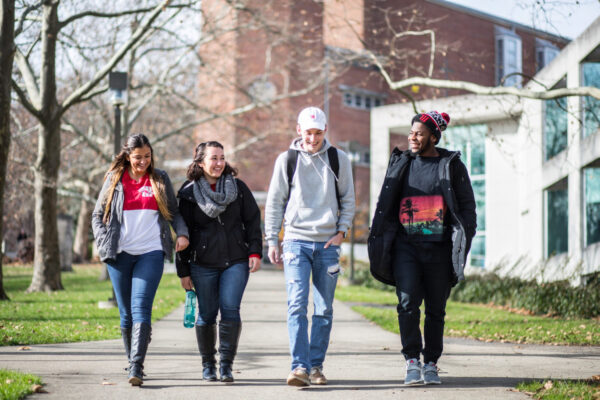Originally posted on the Association of College and University Educator’s Q Blog.
José Bowen, president of Goucher College (MD), says encouraging his college instructors to take risks is crucial to promote a culture of teaching on campus.
“The first time you try a group activity, students are going to hate it and you’re probably not very good at it yet anyway,” Dr. Bowen told ACUE recently. “So how do we create systems where we encourage people to make mistakes, allow them to fail, learn, and try again?”
Dr. Bowen also explains how instructors can use student feedback to improve their teaching, a topic he discusses in depth as a subject matter expert for ACUE’s Course in Effective Teaching Practices.
How have you personally seen the impact of effective teaching on students?
JB: Years after I had left Georgetown, a student once wrote to me and said that he was now doing a jazz radio show. It had been a dozen years and it was a big class, so I didn’t remember this student much from class. But for me, it was a reminder that the first thing that matters to students is your engagement, your love of your subject.
In the ACUE module on Using Student Achievement and Feedback to Improve Your Teaching, you describe the importance of transparency. Why is that important?
JB: When it comes to student evaluations, it’s never easy to read criticism—and students are going to be critical. I tell faculty to remember the source. It’s generally not personal, although it feels that way.
But if something resonates, and you’re going to try something new in response, then give students credit. If you give students credit, you’re giving them agency. You’re saying, “I read what you wrote; it matters to me.” This is important. Students want to know that their feedback matters in the same way that you want to know that your feedback matters. When students have taken the time to give us feedback, at least acknowledge it in some way, even if you can’t address all of it at once. Students are going to be more receptive to what you’re trying if you credit students with being the source of the change.
Then you can check in a week later. Did it help? Did it make a difference? It’s a way to give students agency and show that you care—and we know from the research that students want you to care about their learning.
How have you made effective teaching part of your student success plans at Goucher?
JB: At Goucher, we’ve created a new center for the advancement of teaching. There is a mechanism for supporting faculty, there are experts, and there are opportunities to learn.
But you also have to encourage faculty to take risks. When you try a new way to engage with students in the classroom, you’re probably not going to succeed the first time. The first time you try a group activity, students are going to hate it and you’re probably not very good at it yet anyway. So how do we create systems where we encourage people to make mistakes, allow them to fail, learn, and try again? To me the most important aspect is allowing for failure, predicting failure, and making that part of the process.
What’s something that you recently learned about teaching and learning that excited you?
JB: I’m very excited by the research about students’ willingness to get help to do better. Now, it shouldn’t be a surprise to hear that students will have a harder time if they’re not willing to get help. But last year the National Survey of Student Engagement found that one in five first-year students had difficulty in getting help. It’s not that they were physically unable to get help. It’s mostly that they don’t understand the system. They feel nervous or there’s a stigma attached to getting help. Maybe the office hours didn’t correspond to their work schedule. So the idea that the students who aren’t getting help are at a serious disadvantage, I think, is a pretty powerful one that should immediately change how we try to help first- and second-year students.
Dr. Bowen is featured in ACUE’s Course in Effective Teaching Practices for modules on Engaging Underprepared Students; Embracing Diversity in Your Classroom; and Using Student Achievement and Feedback to Improve Your Teaching. His latest book, Teaching Naked Techniques: A Practical Guide to Designing Better Classes, is written with C. Edward Watson and serves as a comprehensive guide of proven quick ideas for improving learning.
ACUE partners with colleges and universities at all levels of the institution to support student success strategies through an innovative Course in Effective Teaching Practices. ACE is collaborating with ACUE in a joint venture as part of its nearly century-old mission to prepare campus leaders, support the work of colleges and universities and assist institutions in strengthening student learning, persistence and completion.
If you have any questions or comments about this blog post, please contact us.


